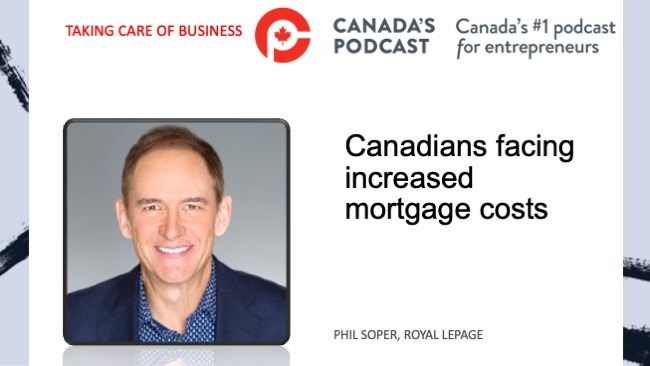Interest rates will continue to dictate the outcome of Canada’s housing market in 2024 with the first and second halves showing different pictures, says a report by RBC Economics.
“We expect slow activity and softer prices to persist in the early part of the year as the Bank of Canada maintains its policy rate at a two-decade high and home ownership stays out of reach for many potential buyers. But, a pivot toward rate cuts mid-year will get the wheels turning faster over the second half or perhaps even sooner. There will be a lot of pent-up demand to satisfy in the market once confidence returns, which could heat things up in a hurry. However, poor affordability conditions will restrain the recovery and make it a gradual liftoff. The larger window of opportunity for buyers is likely to open only after interest rates have dropped materially—something we foresee in the latter stages of 2024 or into 2025. That’s especially the case for first-time buyers who may be more financially constrained,” said the report.

Thirdman
Improving sales prospects are bound to attract more sellers. Mortgage renewal payment shocks could also prompt more owners to put properties on the market. An influx of sellers would keep supply-demand conditions in balance, and temper any upward pressure on demand. For-sale inventories have been rebuilding over the past couple of years after reaching historical lows earlier in the pandemic,” said RBC.
“We project home resales in Canada to rebound 9.2% year-over-year to 484,400 units in 2024—partially reversing massive declines of 25.1% in 2022 and 11.1% in 2023. That number of transactions would still fall short of the level reached before the pandemic in 2019 (490,900 units). We expect the recovery to strengthen in 2025 to 562,100 units—a gain of 16%,” it said.
“The housing market varies considerably across the country and this is unlikely to change in the year ahead. Crushing home ownership costs have significantly depressed home resales in British Columbia and Ontario. There isn’t much more vigour in Quebec. But other provincial markets have been broadly resilient. Activity remains near or above pre-pandemic levels in Alberta, Saskatchewan, Manitoba and most of Atlantic Canada.
“We expect lower interest rates in the second half of 2024 to lift activity from coast to coast. A market uptrend is in fact already taking shape in Alberta and Saskatchewan—setting both up for above-average resales growth this year of 13.5% and 9.4%, respectively.
“Other provinces are likely to turn a corner by the summer. We forecast residential transactions to rebound modestly this year in B.C. (6.4%) and Ontario (7.7%). It will be even more robust east of Ontario with growth rates as high as 15.8% in Prince Edward Island, 15.5% in Nova Scotia and 10.2% in Quebec. We think it will take bigger rate cuts or deeper price drops to make a meaningful difference for buyers in expensive markets.”
RBC said its outlook for prices calls for the national RPS Home Price Index (HPI) to ease further by 1.0% this year, following a 2.6% decline in 2023. We see the market turnaround having a greater impact in 2025 when the HPI is forecast to rise 3.1%. In this scenario, the national index would remain below its 2022 peak throughout the two-year projection horizon.
“Home prices across the provinces will run the gamut this year. We project gains in Alberta (2.2%), New Brunswick (0.7%), Nova Scotia (0.2%) and Saskatchewan (0.1%). But, there will be losses in Ontario (-2.0%), Manitoba (-1.8%), Newfoundland and Labrador (-0.6%), B.C. (-0.3%) and Quebec (-0.2%). No change is expected for P.E.I.,” explained the report.
Canada* | 461,200 | 490,900 | 551,800 | 666,300 | 499,000 | 443,500 | 484,100 | 561,900 |
YoY % change | -10.5 | 6.4 | 12.4 | 20.8 | -25.1 | -11.1 | 9.2 | 16.1 |
British Columbia | 78,100 | 77,000 | 93,400 | 124,000 | 80,500 | 73,100 | 77,800 | 90,300 |
YoY % change | -24.5 | -1.4 | 21.3 | 32.8 | -35.1 | -9.2 | 6.4 | 16.1 |
Alberta | 53,500 | 53,500 | 55,800 | 85,600 | 84,000 | 76,500 | 86,800 | 89,100 |
YoY % change | -7.4 | 0 | 4.3 | 53.4 | -1.9 | -8.9 | 13.5 | 2.6 |
Saskatchewan | 11,100 | 11,300 | 14,100 | 17,500 | 15,400 | 14,900 | 16,300 | 16,800 |
YoY % change | -7.5 | 1.8 | 24.8 | 24.1 | -12 | -3.2 | 9.4 | 3.1 |
Manitoba | 13,500 | 14,700 | 16,800 | 19,700 | 15,700 | 14,200 | 15,200 | 16,000 |
YoY % change | -6.3 | 8.9 | 14.3 | 17.3 | -20.3 | -9.6 | 7 | 5.3 |
Ontario | 192,500 | 209,700 | 227,600 | 271,200 | 184,300 | 161,700 | 174,100 | 220,600 |
YoY % change | -12.4 | 8.9 | 8.5 | 19.2 | -32 | -12.3 | 7.7 | 26.7 |
Quebec | 86,500 | 96,100 | 111,900 | 109,100 | 86,800 | 75,800 | 83,500 | 95,700 |
YoY % change | 4.8 | 11.1 | 16.4 | -2.5 | -20.4 | -12.7 | 10.2 | 14.6 |
New Brunswick | 8,400 | 9,500 | 10,800 | 13,200 | 10,500 | 9,100 | 10,100 | 11,200 |
YoY % change | 1.2 | 13.1 | 13.7 | 22.2 | -20.5 | -13.3 | 11 | 10.9 |
Nova Scotia | 11,100 | 12,300 | 14,000 | 15,900 | 12,500 | 10,300 | 11,900 | 13,500 |
YoY % change | 4.7 | 10.8 | 13.8 | 13.6 | -21.4 | -17.6 | 15.5 | 13.4 |
Prince Edward Island | 2,100 | 1,900 | 2,100 | 2,400 | 2,000 | 1,900 | 2,200 | 2,400 |
YoY % change | -4.5 | -9.5 | 10.5 | 14.3 | -16.7 | -5 | 15.8 | 9.1 |
Newfoundland & Labrador | 3,700 | 4,100 | 4,700 | 6,800 | 6,300 | 5,400 | 5,500 | 5,500 |
YoY % change | -5.1 | 10.8 | 14.6 | 44.7 | -7.4 | -14.3 | 1.9 | 0 |
Canada | 546600 | 553600 | 605400 | 721200 | 812400 | 791100 | 783100 | 807000 |
YoY % change | 2.3 | 1.3 | 9.4 | 19.1 | 12.6 | -2.6 | -1 | 3.1 |
British Columbia | 810500 | 778400 | 839800 | 987900 | 1126000 | 1118300 | 1115200 | 1153100 |
YoY % change | 5.3 | -4 | 7.9 | 17.6 | 14 | -0.7 | -0.3 | 3.4 |
Alberta | 427800 | 419100 | 419000 | 441400 | 476100 | 481900 | 492400 | 508100 |
YoY % change | -0.3 | -2 | 0 | 5.3 | 7.9 | 1.2 | 2.2 | 3.2 |
Saskatchewan | 324700 | 319500 | 321300 | 335200 | 346500 | 343600 | 344100 | 354800 |
YoY % change | -1.1 | -1.6 | 0.6 | 4.3 | 3.4 | -0.8 | 0.1 | 3.1 |
Manitoba | 298200 | 303100 | 312100 | 344800 | 374300 | 359700 | 353400 | 362000 |
YoY % change | 0.7 | 1.6 | 3 | 10.5 | 8.6 | -3.9 | -1.8 | 2.4 |
Ontario | 596800 | 619100 | 692700 | 847900 | 955300 | 910200 | 892300 | 917800 |
YoY % change | 1.2 | 3.7 | 11.9 | 22.4 | 12.7 | -4.7 | -2 | 2.9 |
Quebec | 337500 | 355500 | 391700 | 463400 | 522000 | 525500 | 524700 | 542400 |
YoY % change | 3.9 | 5.3 | 10.2 | 18.3 | 12.6 | 0.7 | -0.2 | 3.4 |
New Brunswick | 212700 | 215200 | 220500 | 262100 | 324800 | 343600 | 346000 | 352200 |
YoY % change | 3.2 | 1.2 | 2.5 | 18.9 | 23.9 | 5.8 | 0.7 | 1.8 |
Nova Scotia | 273700 | 280100 | 303000 | 378800 | 463100 | 472600 | 473500 | 485400 |
YoY % change | 1.3 | 2.3 | 8.2 | 25 | 22.3 | 2.1 | 0.2 | 2.5 |
Prince Edward Island | 265700 | 276600 | 312600 | 364200 | 416300 | 428800 | 429000 | 442700 |
YoY % change | 10.9 | 4.1 | 13 | 16.5 | 14.3 | 3 | 0 | 3.2 |
Newfoundland & Labrador | 284500 | 272600 | 272000 | 290300 | 320500 | 325500 | 323400 | 329000 |
YoY % change | -3.4 | -4.2 | -0.2 | 6.7 | 10.4 | 1.6 | -0.6 | 1.7 |

Mario Toneguzzi
Mario Toneguzzi is Managing Editor of Canada’s Podcast. He has more than 40 years of experience as a daily newspaper writer, columnist, and editor. He was named in 2021 as one of the Top 10 Business Journalists in the World by PR News – the only Canadian to make the list
About Us
Canada’s Podcast is the number one podcast in Canada for entrepreneurs and business owners. Established in 2016, the podcast network has interviewed over 600 Canadian entrepreneurs from coast-to-coast.
With hosts in each province, entrepreneurs have a local and national format to tell their stories, talk about their journey and provide inspiration for anyone starting their entrepreneurial journey and well- established founders.
The commitment to a grass roots approach has built a loyal audience on all our social channels and YouTube – 500,000+ lifetime YouTube views, 200,000 + audio downloads, 35,000 + average monthly social impressions, 10,000 + engaged social followers and 35,000 newsletter subscribers. Canada’s Podcast is proud to provide a local, national and international presence for Canadian entrepreneurs to build their brand and tell their story.





